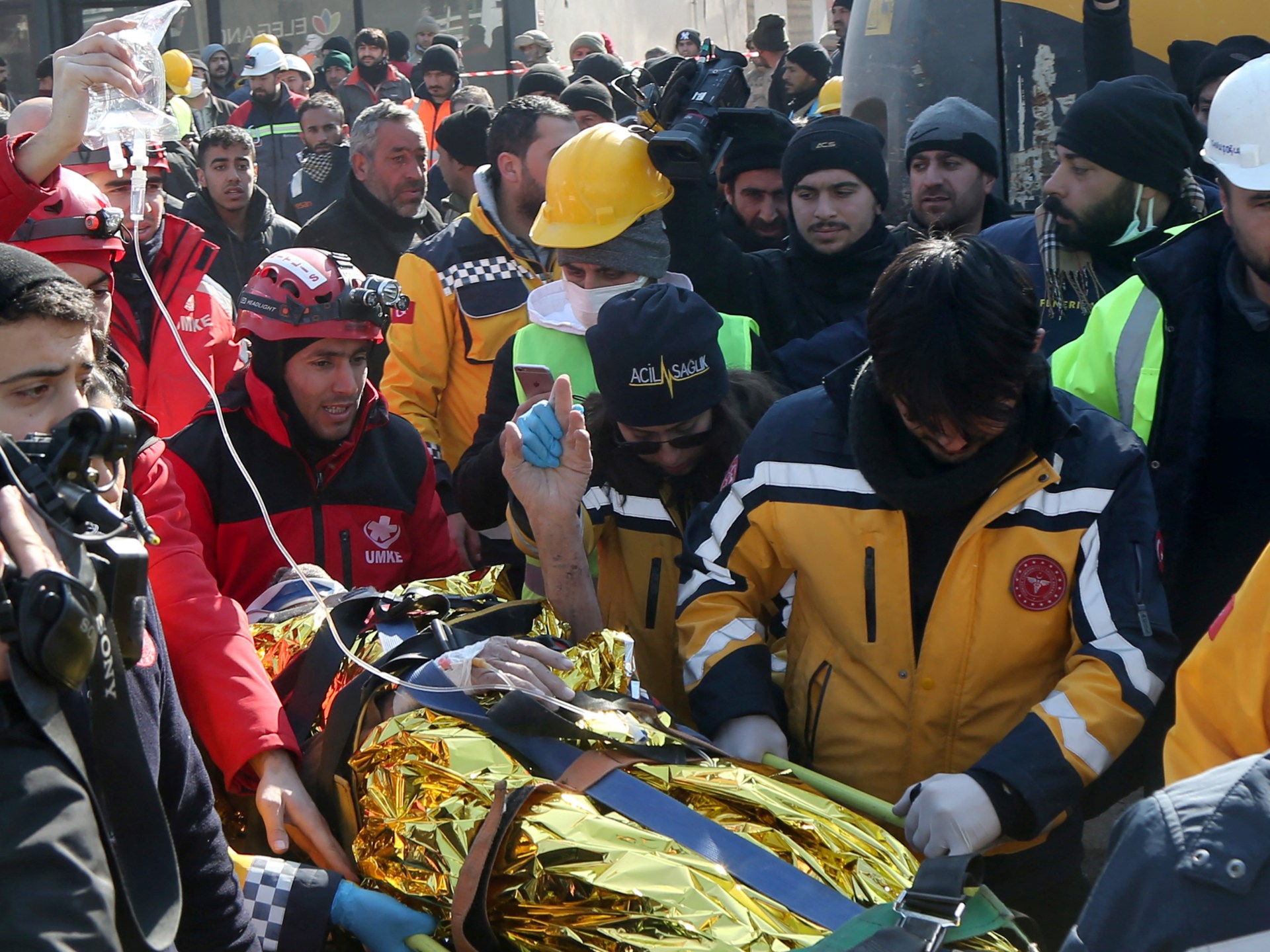Yemen: Saudi-led coalition targets Sanaa after vessel seized | Humanitarian Crises News
Coalition says it destroyed workshops and warehouses for drones in response to a UAE-flagged vessel in the Red Sea being seized.
The Saudi-led coalition has launched air attacks in Yemen’s capital Sanaa in response to a United Arab Emirates-flagged vessel in the Red Sea being seized and drone attacks launched by Yemeni Houthi fighters earlier this week.
On Wednesday, Saudi state TV reported the coalition as saying it destroyed workshops and warehouses for drones.
Saudi Arabian air defences intercepted and destroyed five drones launched by the Iran-aligned Houthi movement towards the kingdom on Monday, as the rebels based in the key Red Sea port of Hodeidah seized the UAE-flagged Rwabee ship claiming it contained military materials.
The seized ship is being held in the Houthi-held port of Salif, north of Hodeidah, and some 60km (37 miles) from the border with Saudi Arabia.
The coalition said the vessel was in international waters when it was seized, and was carrying “medical field equipment” meant for the construction of a hospital on the Yemeni archipelago of Socotra.
The Houthis, meanwhile, claim that the boat was in Yemeni waters “without authorisation” and carrying military materials.
Hodeidah has been a lifeline entry point for aid supplies to Yemen’s largely rebel-held north, including Sanaa.
Saudi Arabia intervened in Yemen’s war in 2015 to support the internationally recognised government against the Houthis.
The UAE is a member of the Saudi-led coalition and has not publicly reacted to the incident, the first of its kind in more than two years.
In November 2019, the Houthis seized two South Korean vessels and a Saudi-flagged tug in the Red Sea a few miles off Uqban island, north of Hodeidah.
The war in Yemen has turned an already poor country into one of the world’s most devastating humanitarian disasters.
The United Nations has estimated the war killed 377,000 people by the end of 2021, both directly and indirectly through hunger and disease.




